The Middle East was on edge Friday after Israel unleashed an intense wave of strikes on Lebanon and Hezbollah's leader vowed revenge for attacks targeting its communication devices that killed dozens of people and left thousands injured across the country.
The prospect of an all-out war between the U.S. ally and the Iran-backed militant and political group appeared closer than ever as the Israeli military said late Thursday its air force hit about 100 Hezbollah launchers and other infrastructure sites it said were set to be fired at Israeli territory.
Israel hit the country's south at least 52 times, Lebanon's state-run news agency said — one of the heaviest barrages on the area since the two sides began exchanging regular fire in the wake of the Hamas-led Oct. 7 terror attacks and Israel's assault on the Gaza Strip.
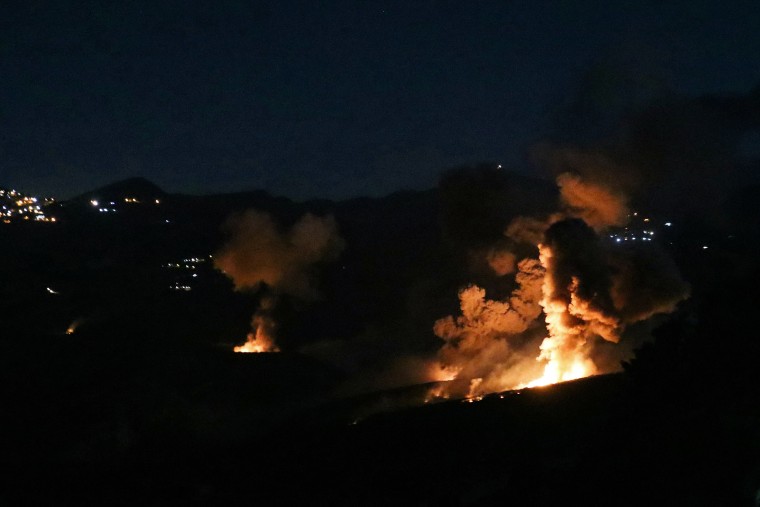 Smoke and fire rise from the site of an Israeli strike on the southern Lebanese border village of Mahmoudiyeh late Thursday.Rabih Daher / AFP - Getty Images
Smoke and fire rise from the site of an Israeli strike on the southern Lebanese border village of Mahmoudiyeh late Thursday.Rabih Daher / AFP - Getty ImagesIt followed a stunning operation earlier this week in which thousands of pagers and walkie-talkies used by Hezbollah operatives exploded nearly simultaneously across Lebanon, killing at least 37 people, including two children, and injuring close to 3,000. The attacks sowed fear and chaos across the nation, overwhelming hospitals and making people fearful of using any electronic devices.
“There is no doubt that we have been exposed to a major and severe security and humanitarian blow,” Hezbollah leader Hassan Nasrallah said of the device attacks in a much-anticipated televised address to the nation Thursday.
He accused Israel of an act of war against Lebanon, but stopped short of specifying how or when his group would retaliate. “The enemy has crossed all red lines and all laws in this attack,” Nasrallah said, as Israeli warplanes flew above the Lebanese capital, Beirut, creating a deafening sonic boom.
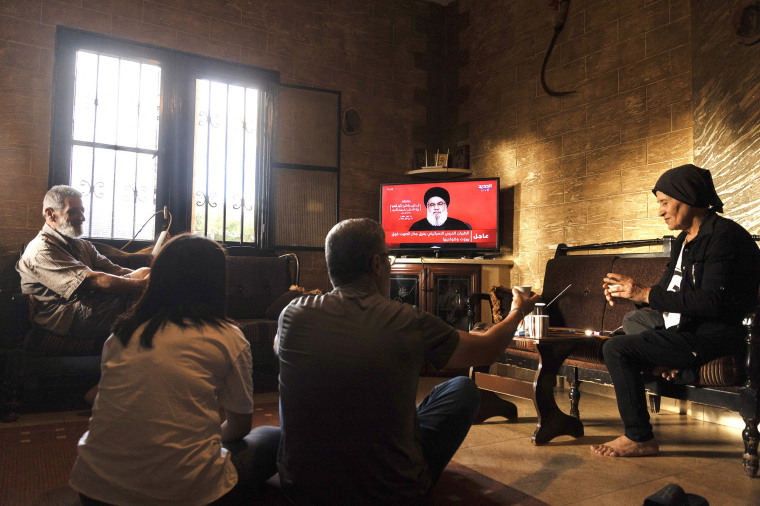 Nasrallah's speech was watched in the southern Lebanese village of Zawatar and far beyond.Ammar Ammar / AFP - Getty Images
Nasrallah's speech was watched in the southern Lebanese village of Zawatar and far beyond.Ammar Ammar / AFP - Getty ImagesA former senior Israeli security official told NBC News that the devices were detonated not as part of a strategic decision but because the Israeli military was trying to act while it was still possible to use the explosives. “It became a kind of use-it-or-lose-it situation,” the former official said. Israel has not claimed responsibility for the attacks or directly commented on them.
But after months of mounting fears about escalation that could lead to a broader regional conflict, the device attacks came as Israel declared a “new phase” to its deadly but simmering conflict with Hezbollah that has seen thousands of people displaced on both sides of the shared border.
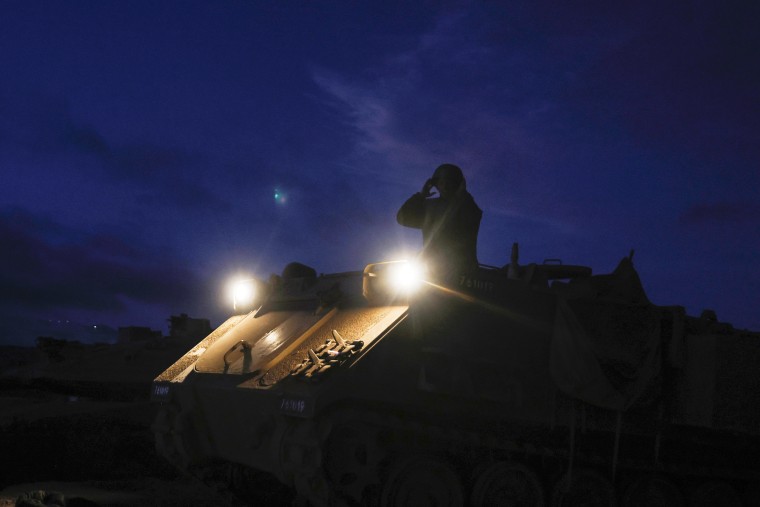 An Israeli soldier stands atop an armored vehicle in the Israeli-annexed Golan Heights this week.Jalaa Marey / AFP - Getty Images
An Israeli soldier stands atop an armored vehicle in the Israeli-annexed Golan Heights this week.Jalaa Marey / AFP - Getty ImagesThe escalation of tensions Thursday was met with growing calls for restraint, with the United Nations peacekeeping force in south Lebanon urging Friday “all actors to immediately de-escalate.”
The U.N. Security Council is due to meet on Friday over the blasts.
The White House said Thursday the U.S. was “afraid and concerned about potential escalation” in the region, calling for an “achievable” and “urgent” diplomatic solution.
.png)
 2 hours ago
6
2 hours ago
6



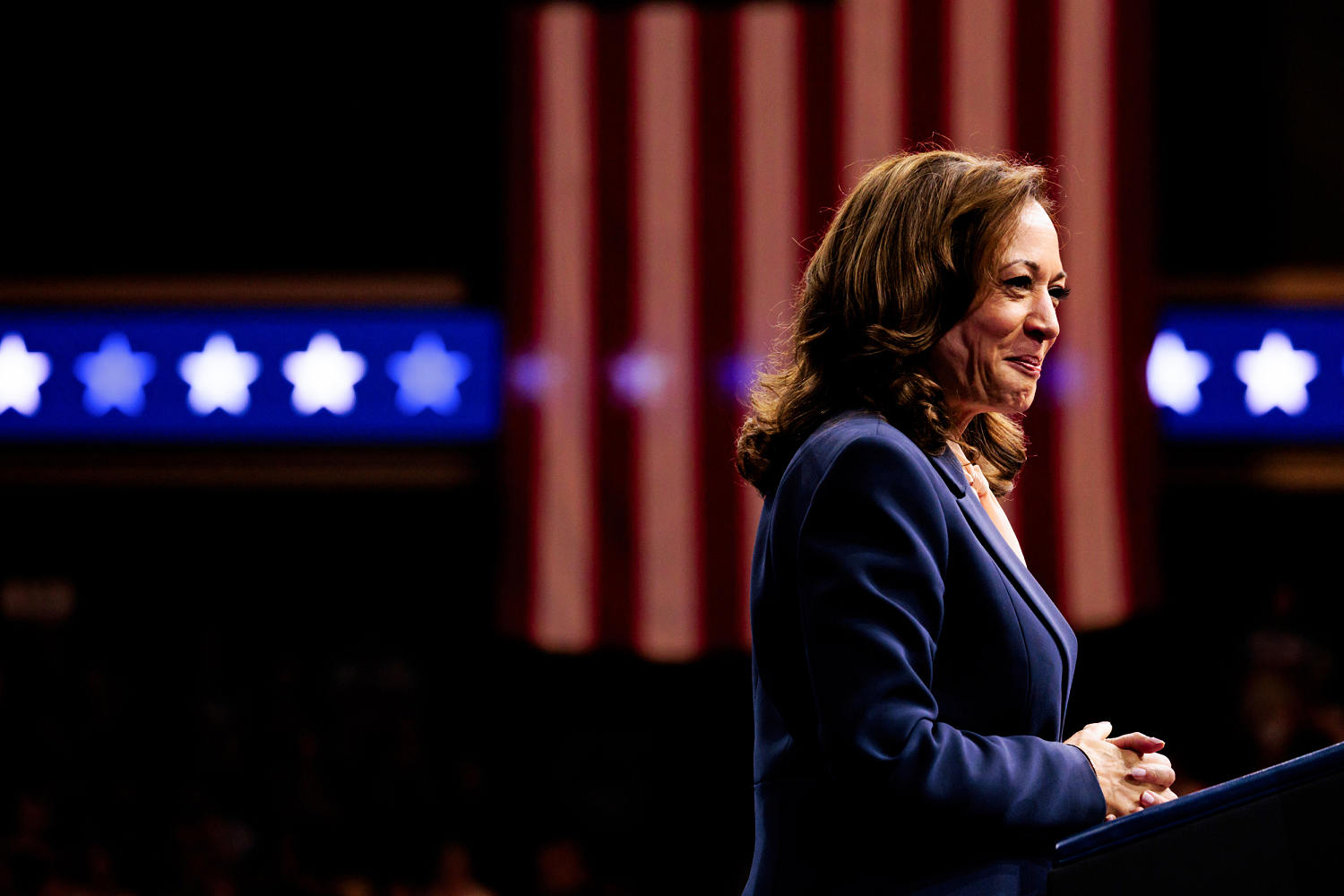


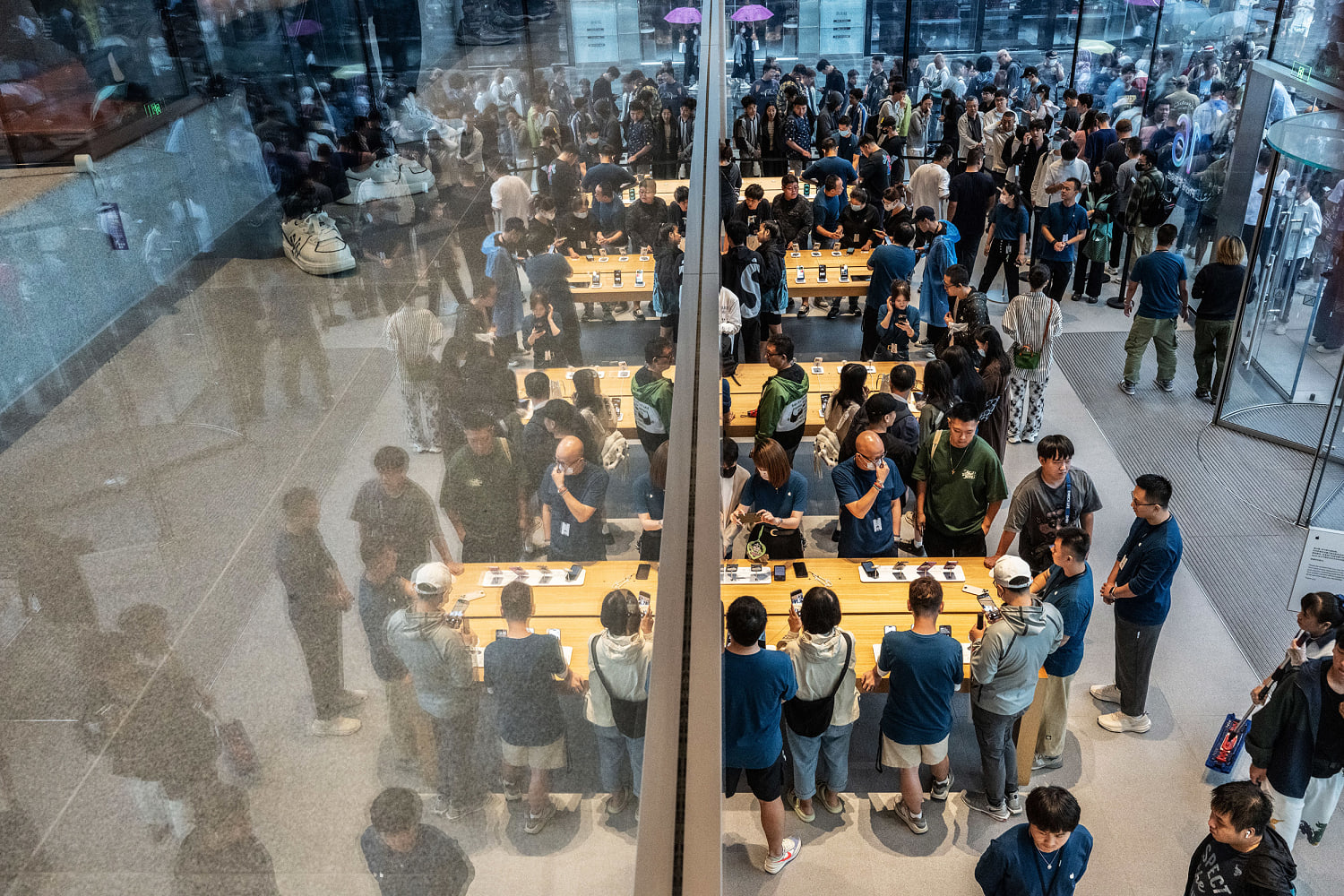




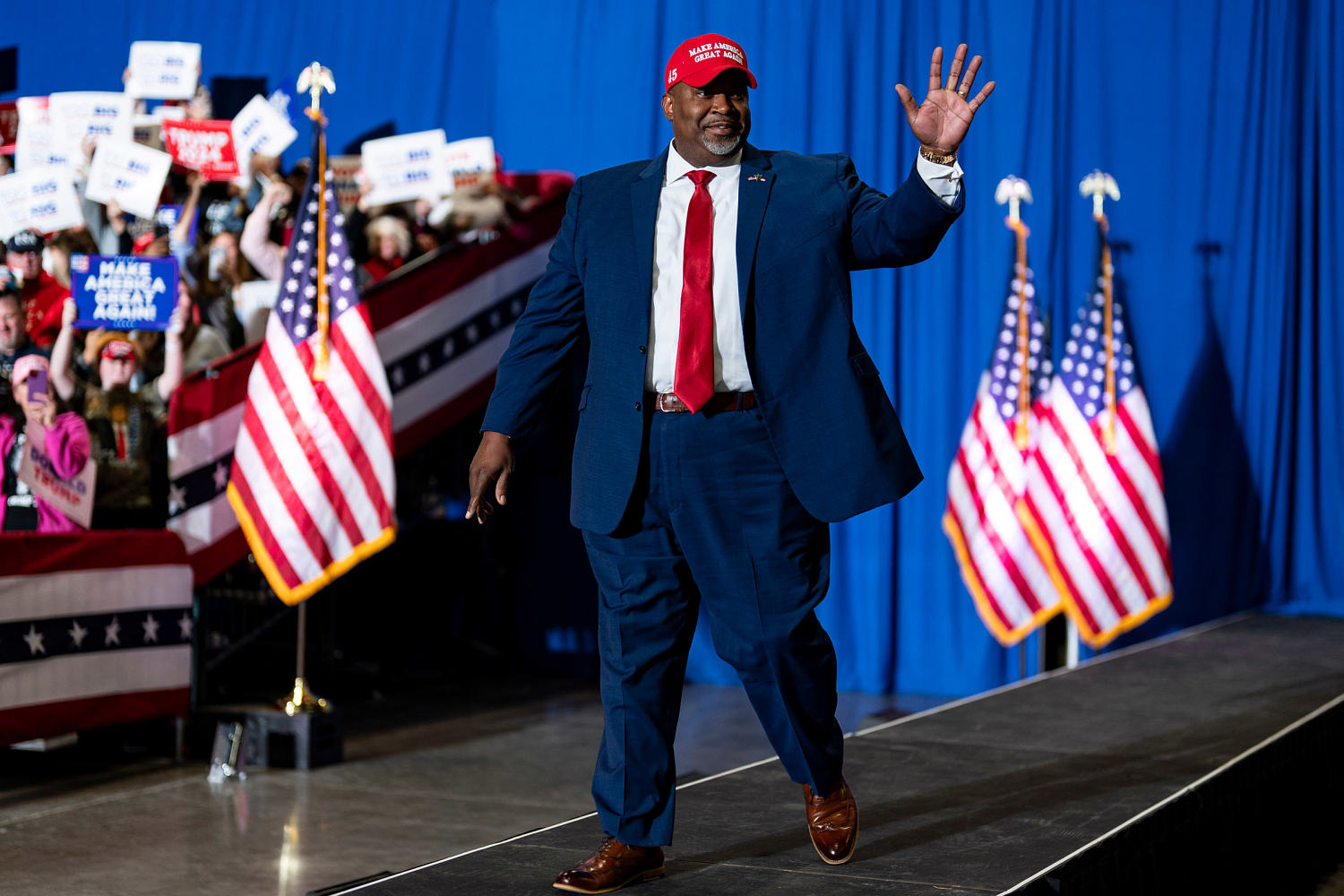


















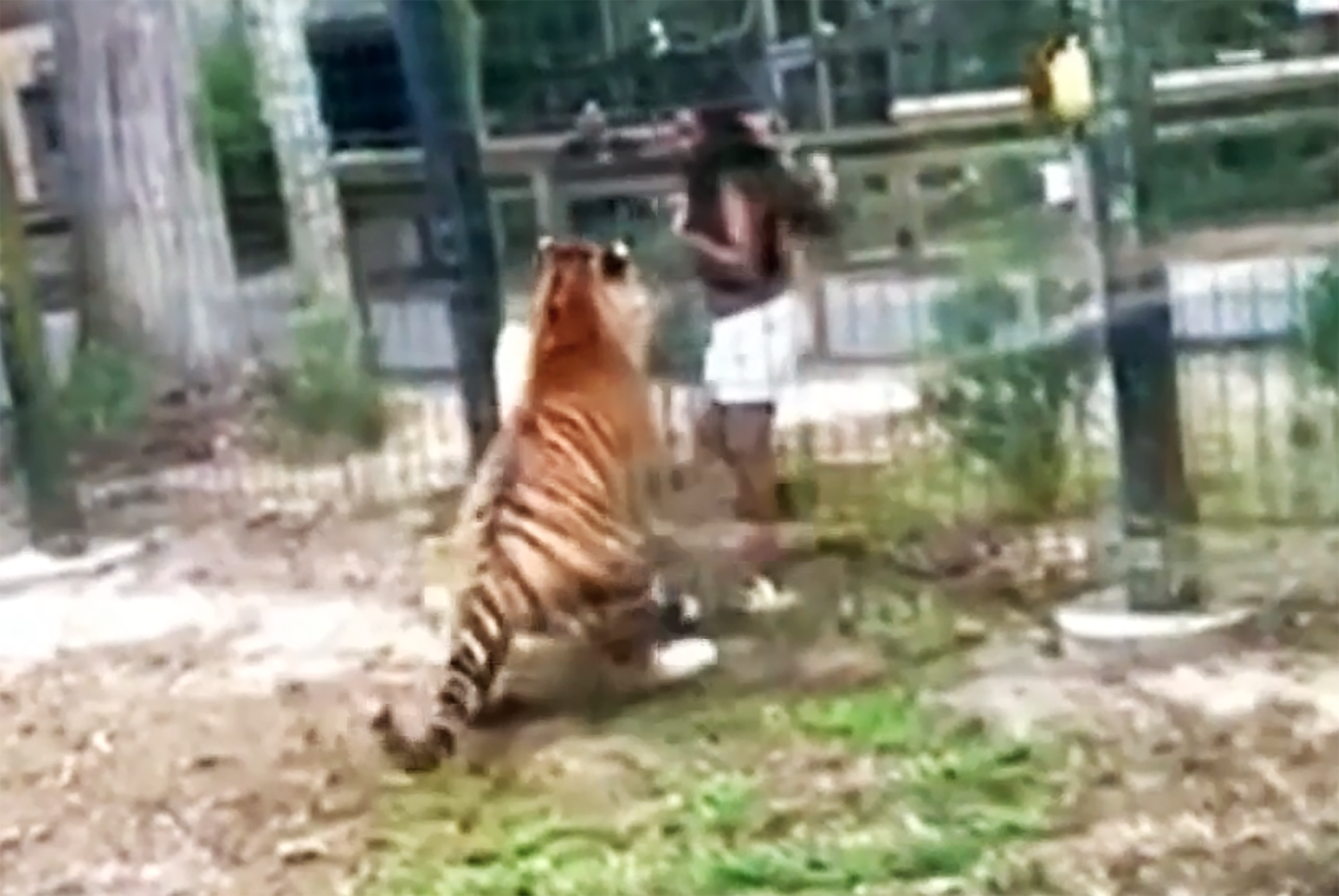


 Bengali (BD) ·
Bengali (BD) ·  English (US) ·
English (US) ·